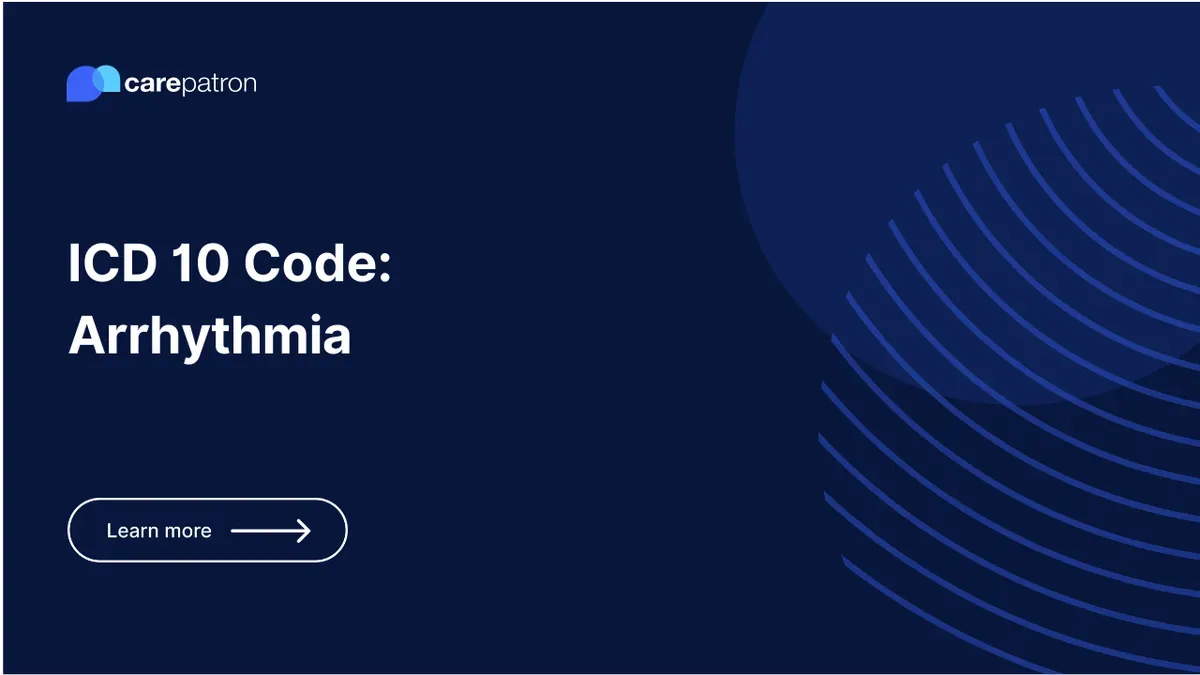
Arrhythmia ICD-10-CM Codes | 2023
Discover the latest ICD-10-CM codes for Arrhythmia for 2023, which are billable, essential clinical info, related synonyms, & unique FAQs in our complete
Use Code
Commonly asked questions
Arrhythmia symptoms can include palpitations, feeling a pause between heartbeats, lightheadedness, dizziness, fainting, shortness of breath, and chest pain. However, some arrhythmias can be asymptomatic.
While some arrhythmias can be life-threatening, others are less dangerous but can still lead to complications and discomfort. It's vital to get any irregularities in your heartbeat checked by a healthcare professional.
Managing arrhythmias involves lifestyle changes such as avoiding triggers (like caffeine or alcohol), managing stress, quitting smoking, maintaining a healthy weight, and regular exercise. Medications or procedures may also be necessary, depending on the type and severity of the arrhythmia.
EHR and practice management software
Get started for free
*No credit card required
Free
$0/usd
Unlimited clients
Telehealth
1GB of storage
Client portal text
Automated billing and online payments
